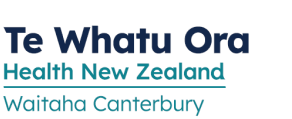What does it do?
Gabapentin is used to treat and prevent some types of pain and seizures. It is also sometimes used for other conditions.
Before you start
- Tell your doctor if you have kidney problems.
- Tell your doctor if you are pregnant, planning to become pregnant, or breastfeeding.
How should you take it?
Take gabapentin regularly as directed with a glass of water. You can take it with or without food.
What if you forget a dose?
Take the missed dose as soon as possible and continue as directed.
Can you take other medicines?
Some medicines available without a prescription may react with gabapentin including:
- some antihistamines, such as chlorphenamine, hyoscine, meclozine and promethazine. These can be in medicines for allergies, nausea and colds.
Tell your pharmacist or doctor about all medicines or treatments that you may be taking, including vitamins, herbal products (e.g. ginkgo) or recreational drugs (e.g. ecstasy).
What side effects might you notice?
| Side Effects | Recommended action |
|---|---|
|
Suicidal thoughts |
Tell your doctor immediately |
|
Confusion, trouble concentrating, memory loss Mood changes Loss of co-ordination/walking or handwriting problems, tremor Changes in vision |
Tell your doctor |
|
Dizziness, drowsiness, tiredness or weakness Swollen feet or legs Weight gain Dry mouth |
Tell your doctor if troublesome |
If you notice any other effects, discuss them with your doctor or pharmacist.
Other information:
- Gabapentin can impair your ability to do tasks such as driving or using machines. Alcohol makes this worse. Discuss your risk with your health professional. (search NZTA - Are you safe to drive?)
- Do not stop taking gabapentin without talking to your doctor first.
This leaflet contains important, but not all, information about this medicine.
Prepared by the MyMedicines Committee at Christchurch Hospital, Te Whatu Ora - Waitaha, New Zealand. March 2023
For more general information about this sheet and its contents, see: What does a My Medicines sheet cover?
Te Reo Māori
Te Reo Māori information sheets supported by Health Quality and Safety Commission New Zealand
Web links for this sheet in different formats
Click on buttons to copy web addresses for this leaflet:
If your browser does not automatically copy these links use its copy command instead.
About My Medicines
My Medicines Patient Information Leaflets (PILs) contain important, but not all, information about the medicines they describe.
For more information about the sheets, see: What does a My Medicines sheet cover?
My Medicines is developed by a team at Te Whatu Ora – Waitaha. Our team is made up of doctors, pharmacists, and a non-medical person to help us keep to plain language. We also discuss our information with specialist health professionals or groups when needed

